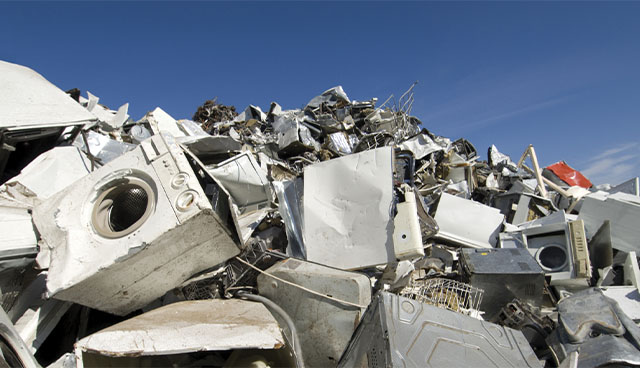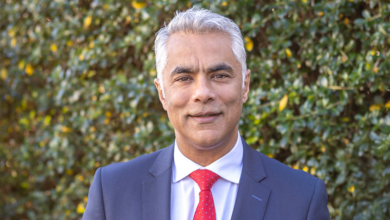Priorities for the Northern Ireland environment

Department of Agriculture, Environment and Rural Affairs (DAERA) Permanent Secretary, Anthony Harbinson, discusses progress on the four key pillars of the Executive’s approach to improving the environment.
Speaking at the beginning of 2022, Harbinson, who is soon to be replaced as the Department’s Permanent Secretary by Katrina Godfrey, highlighted that existing challenges to Northern Ireland’s environment had been made even greater by the pandemic.
Acknowledging a changed public attitude and growing emphasis on improving the environment, Harbinson says that now more than ever it is critical to hear the voices of young people as “the generation that will inherit the environment we choose to leave them”.
Pointing to the dual climate and biodiversity crisis as a key priority of the Executive since the New Decade, New Approach agreement in 2020, Harbinson says: “Our environment has never been higher on the political agenda.”
As the Permanent Secretary explains, the Executive’s approach to improving the environment is built on four key pillars:
• green growth;
• an Executive Climate Change Bill;
• the Executive’s first Environment Strategy; and
• future agricultural policy.
On green growth, Harbinson outlines that a Green Growth Strategy is set to be published by the Department in 2022, following the consultation closure on the draft strategy at the end of 2021. Describing the strategy as “an important milestone for Northern Ireland in the fight against climate change”, the Permanent Secretary sets out the context in which Northern Ireland finds itself lagging behind the rest of the UK in relation to emission reductions since 1990.
Explaining that green growth means using the move from a high-to a low-emissions society to improve people’s quality of life through green jobs and a clean, resilient environment while ensuring that the region’s natural assets can deliver their full economic potential on a sustainable basis, Harbinson believes that the strategy will offer an opportunity to embed green growth principles into decision-making.
Discussing the impetus being placed on imminent action within the Strategy’s 10 executive commitments, Harbinson points to the example of ministers committing to embed green growth into all decision making and ensuring that green growth is central to all policy and budgetary decisions by introducing a statutory green growth test and making green growth a budgetary priority.
Additionally, he says that “walking the talk” is important and highlights Executive agreement to lead by example through delivering a government estate and fleet with net zero operational carbon emissions and ensuring a green growth aligned procurement strategy for all government spend.
He adds: “The Strategy clearly highlights that to take the necessary decisions and actions, a collective approach will be required across central and local government, the private, voluntary and community sectors and all our citizens. The decisions we all make need to reflect the green growth principles and each and every one of us can and should use them as a point of reference when making decisions around how we live, work, move around and interact with each other.”
Setting out green growth as an opportunity to “kick-start” Northern Ireland’s recovery from the Covid-19 crisis, Harbinson says delivery has already begun through the launch of Forests for Our Future, a programme aimed at planting 18 million trees and creating 9,000 hectares of new woodland by 2030 and working with companies to address Northern Ireland’s reliance on fossil fuels.
“The Strategy clearly highlights that to take the necessary decisions and actions, a collective approach will be required across central and local government, the private, voluntary and community sectors and all our citizens.”
Climate Change Bill
Harbinson was speaking before the progress of the Agriculture Minister’s Climate Change Bill, which is now awaiting Royal Assent. The Minister’s Bill, which was supported by the Department, has been heavily distorted since its introduction, mainly due to heavy amendments to closer align the Bill to that of a now-withdrawn Private Member’s Bill, which sought a more ambitious greenhouse gas target and timeline.
Describing the Minister’s Bill as “evidence-based” and science-led”, Harbinson says that it will “deliver the right balance of climate ambition while supporting a thriving local agricultural sector,” adding that “a regionally balanced economy will boost our food security, prevent carbon leakage, and reduce our emissions”.
Environment Strategy
Addressing the third pillar of environmental improvement, an environmental strategy, which has also just recently closed for consultation, Harbinson believes the strategy is one that will “set the direction of travel for the coming decades, providing us with focus and purpose, and is of real importance for all our futures”.
Subject to the approval of the Northern Ireland Assembly, the Department intends to adopt the Environment Strategy as Northern Ireland’s first Environmental Improvement Plan under the UK Environment Act 2021.
“We want the new Environment Strategy to focus on results that will make a difference to the lives of people now, and in the future: it will cover critical areas including climate and biodiversity action, sustainability, agriculture, our marine environment, our built environment, and natural capital. It will play a central role in improving our natural environment and people’s enjoyment of our environment for years to come,” he says.
The draft Strategy sets out six strategic environmental outcomes which encompass the main environmental challenges in the coming decades and according to the Permanent Secretary, the objectives will form the basis of how Northern Ireland faces up to the challenges of improving its environment.
Harbinson explains that sitting underneath the Environment Strategy is a number of other key strategies under development, including a revised Biodiversity Strategy, and a Peatlands Strategy.
He adds: “Action is also needed for our seas to reach Good Environmental Status. Collaboration through the British-Irish Council marine sub-groups and Interreg Va projects such as COMPASS, MarPAMM and SeaMonitor have provided excellent opportunities for cross border monitoring and management of the marine environment. The Department has consulted on management measures for fishing in Marine Protected Areas and intends to introduce regulations in the coming months.”
Agriculture
Turning to the fourth pillar, future agriculture policy, Harbinson stresses that farming is a fundamental part of the fabric of Northern Ireland life and as such, is an essential and important contributor to the economy.
In December 2021, Agriculture Minister Edwin Poots MLA launched a consultation on Future Agricultural Policy Proposals for Northern Ireland, which Harbinson says is a key policy in protecting the environment. “The resources associated with it will play a critical role in achieving the Department’s vision for a future agricultural regime that promotes productivity, resilience, environmental sustainability and a functioning supply chain,” he adds.
Alongside financial support towards the uptake of low emission slurry spreading equipment and investment through the Farm Business Improvement scheme, Harbinson points to the Department’s development of a draft Ammonia Strategy to reduce ammonia and improve the condition of habitats and the opening of the Soil Nutrient Health Scheme.
Air quality
Turning to efforts to address key local environmental challenges facing Northern Ireland, Harbinson points to the Department’s work to develop a Clean Air Strategy, following the launch of a discussion document in November 2020. In August 2021, DAERA and the Department of Health launched the revised joint High Air Pollution Alert Protocol, to ensure the public are alerted to high air pollution in Northern Ireland.
Additionally, on the development of a circular economy, the Permanent Secretary outlines an ambitious recycling rate target of 65 per cent by 2035, ensuring no more than 10 per cent of waste goes to landfill by the same year. Northern Ireland’s recycling rate in 2020 hit 50 per cent, a significant uplift from the 10 per cent rate just a decade before.
Harbinson says that key to achieving this ambition will be addressing a “throw away culture” associated with plastics. New Decade, New Approach committed to the preparation of a plan to eliminate plastic pollution.
Northern Ireland, with a population of just under two million, currently uses around 70 million single-use plastic drinks cups every year and around 150 million single-use plastic food containers and Harbinson says: “That’s a major waste of resources, an unnecessary burden on our waste management infrastructure and, sadly, a blight on our environment for the portion that ends up being littered.
“That’s why the Department has recently run a consultation on ways to reduce our consumption of single-use plastic cups and takeaway food containers. The results will be used to develop a plan for the best way to encourage changes in consumer behaviour to break our single-use plastic habit.”
In addition, the Department is implementing the UK-wide initiative of a Plastic Packaging Tax. From April 2022, a tax is levied on all plastic with less than 30 per cent recycled content, which the Permanent Secretary says will stimulate greater demand for recycled plastic and help to build the circular economy for plastics.
Office for Environmental Protection
Harbinson says that the Department recognises that maintaining independent environmental scrutiny is an essential element of governance following the UK’s exit from the European Union and its associated oversight structures. The UK’s Environment Bill reached the statute book on 9 November 2021, establishing an independent oversight body in the form of the Office for Environmental Protection (OEP). The environment is the only area in which a previous oversight role of the European Commission is being translated into domestic law, making the OEP a unique body.
Following the approval from the Northern Ireland Assembly, the OEP is to become the environmental oversight body for Northern Ireland, which Harbinson says “is undoubtedly the best option we have at the current time”.







